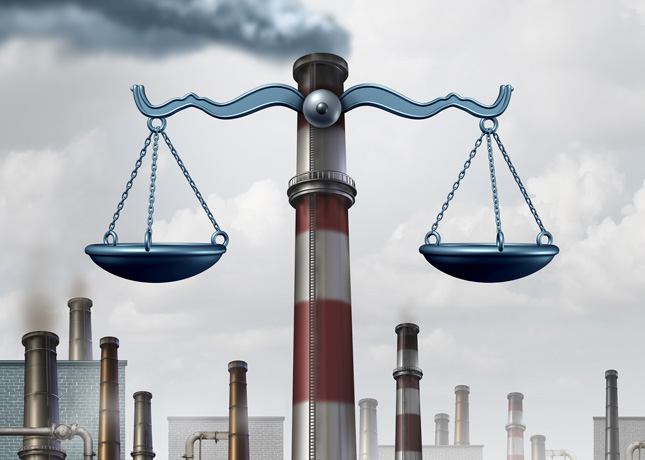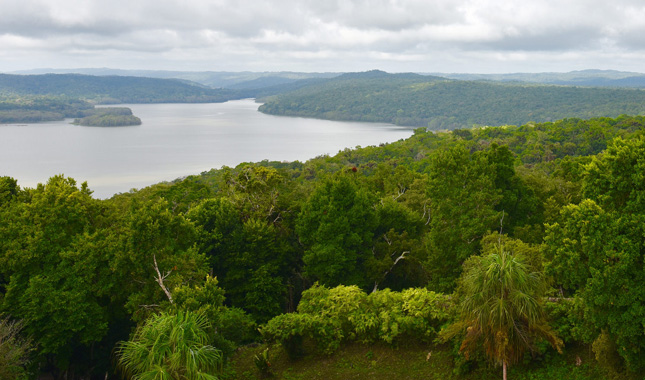-
Evaluating Enterprise: Twenty Years of Conservation Through Sustainable Livelihoods
›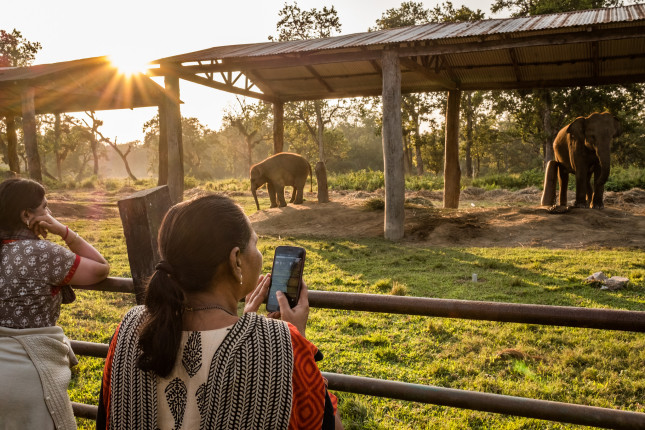
“It’s not often that we have the opportunity to go back to a site 20 years later and see what happened,” said Cynthia Gill, Director of USAID’s Office of Forestry and Biodiversity during a recent Wilson Center event on a retrospective evaluation of the “conservation enterprise” approach to biodiversity. Conservation enterprises are income-generating activities that provide social and economic benefits and help meet conservation goals.
-
The PHE Approach: Addressing Multiple Issues With Integrated Solutions
›
“The PHE [population, health, and environment] approach addresses the relationship between human health and environmental health, to improve primary healthcare services, conserve biodiversity and natural resources, and develop sustainable livelihoods,” said Sarah Harlan, the Learning and Partnerships Director at K4Health, introducing a recent webinar featuring three PHE leaders from Madagascar, East Africa, and the Philippines.
-
Fish Wars, Deadly Dams, and Water Laws: Top Posts for August 2018
›
Are we headed for a global fish war? In our top post for August, Vulcan’s Johan Bergenas argues that “fish may become the newest addition to the list of resources driving geopolitical competition.” In “Like Water and Oil: Fish as a Geostrategic Resource,” he identifies five parallels between oil and fish that point to the need for a more sustainable fishing industry.
-
Bipartisan Lawmakers Fight Illegal Wildlife Trafficking, Promote Smart Development for Conservation
›
“In the last decade, almost half of Africa’s elephants have been killed for their ivory, and some experts are predicting that both elephants and rhinoceros will be extinct by 2030,” said Nancy Lindborg, President of the U.S. Institute of Peace at a recent event on wildlife poaching and trafficking. The illegal trade in protected wildlife is worth US$7-10 billion—some of which has ended up in the pockets of armed groups like Al-Shabaab and the Lord’s Resistance Army, said Lindborg.
-
The New Slave Trade: Migration, Trafficking, and Terrorists in Libya
›
While dismayed Americans watched the “zero tolerance” policy of family separation unfolding at the Mexican border, across the Atlantic, another shocking migration crisis continues to fester. Behind the grueling headlines of drownings in the Mediterranean Sea, migrants run a gauntlet of abuse through the Sahara desert to reach the Libyan coast. Armed militias and terrorist organizations across the Sahel profit by smuggling people displaced by climate, population, and security crises. While European policymakers struggle to cope with arrivals, their containment approach consistently disregards the root causes that force people to take such unimaginable risks. The high value of these human commodities not only exposes vulnerable migrants to torture, extortion, and even enslavement, but also provides funds for terrorist groups intent on attacking the West.
-
Too Little Too Late: Violence Disrupts Maternal Health Care in Conflict Settings
› “One of the first victims of war is the health care system itself,” said Marco Baldan, the chief war surgeon for the International Committee of the Red Cross. Violence directed at health facilities and workers is common in conflict, despite international laws protecting medical personnel, facilities, and transport vehicles during war.
“One of the first victims of war is the health care system itself,” said Marco Baldan, the chief war surgeon for the International Committee of the Red Cross. Violence directed at health facilities and workers is common in conflict, despite international laws protecting medical personnel, facilities, and transport vehicles during war. -
The People vs. Pollution: Empowering NGOs to Combat Pollution with Environmental Law
›
China is four years into its war on pollution, and while the skies over many of its cities are bluer and thousands of polluting industries have been closed, many challenges remain. According to China’s Ministry of Ecology and Environment, 16 percent of China’s soil is polluted, 239 of China’s 338 biggest cities failed to meet air quality standards in 2017, and 32 percent of China’s surface water is not clean enough to swim in. To confront these challenges, Chinese citizens and nongovernmental organizations (NGOs) are taking legal action to halt polluters, push local government to be more accountable, and strengthen enforcement of pollution laws—but most lack the legal experience and expertise needed to be successful. A series of workshops held by the Environmental Law Institute earlier this year sought to close this gap by training NGOs and legal professionals in China on best practices for environmental public interest litigation.
-
Measuring Impact: Building on Lessons Learned to Improve Biodiversity Conservation
›
“Functioning natural systems are critical to human survival itself,” said Carrie Thompson, Deputy Assistant Administrator of the Bureau for Economic Growth, Education and Environment at USAID, at a recent Wilson Center event on USAID’s efforts to increase the effectiveness of its biodiversity conservation programs. Measuring Impact was designed to help support USAID’s 2014 Biodiversity Policy, which is “grounded in a recognition that human well-being and progress are dependent on the health of biodiverse systems and [that] durable development gains are not possible unless these systems are valued and safeguarded,” said Cynthia Gill, Director of USAID’s Office of Forestry and Biodiversity.
 A Publication of the Stimson Center.
A Publication of the Stimson Center.

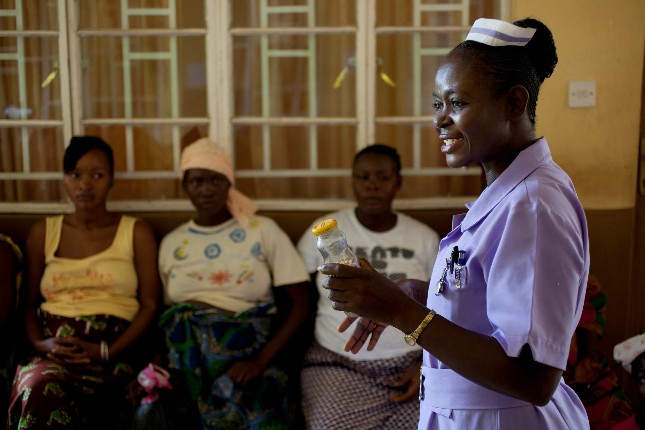
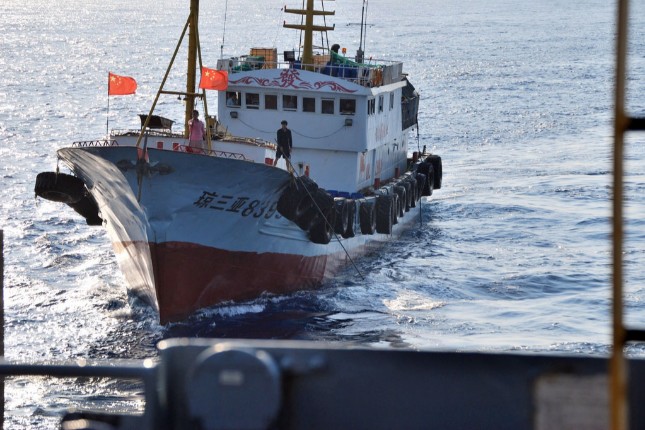

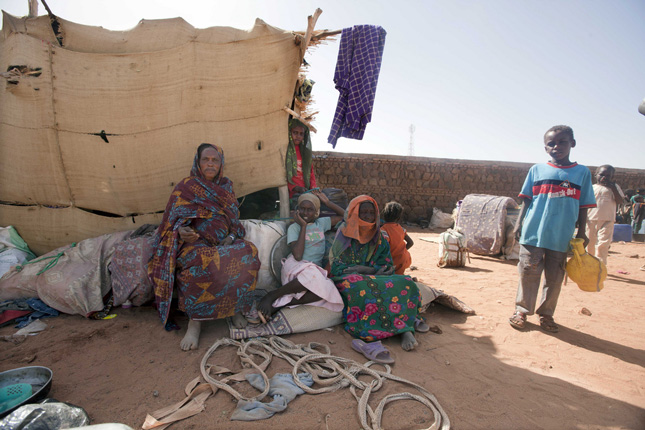
 “One of the first victims of war is the health care system itself,”
“One of the first victims of war is the health care system itself,” 